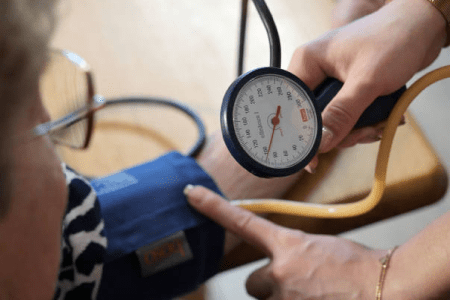
Low Blood Pressure: Low blood pressure, also known as hypotension, is often not taken seriously because some individuals do not experience any discomfort even with low blood pressure. However, this condition can sometimes prove to be life-threatening. When blood pressure drops very low in the body, oxygen and essential nutrients cannot reach our organs properly. This gradually damages cells, and if not treated in time, it can lead to organ failure.
Blood pressure is the force exerted by blood on the walls of our arteries. Normal blood pressure is approximately 120/80 mmHg. However, for the body's organs to function correctly, Mean Arterial Pressure (MAP) is essential, which should not be less than an average of 60–65 mmHg. If blood pressure drops below this, vital organs like the heart, kidneys, and brain do not receive adequate blood and oxygen. This condition is called hypoperfusion, which is the beginning of organ damage.
When blood pressure drops, the body immediately takes certain steps. The heart rate increases to boost blood flow. The body attempts to send more blood to vital organs (heart, brain, kidneys) by reducing blood flow to the extremities. However, if blood pressure remains low for too long or drops too significantly, this system fails, and organs begin to experience severe oxygen deprivation.
When blood pressure is low, the kidneys are the first to be affected, as they are constantly filtering blood. This can lead to Acute Kidney Injury (AKI). Reduced blood flow can cause conditions like shock liver or ischemic hepatitis in the liver. Lack of oxygen can lead to dizziness, fainting, or even a coma. Insufficient oxygen reaching the heart can cause angina, arrhythmia, or a heart attack.
If systolic blood pressure drops below 90 mmHg or MAP falls below 60 mmHg, it is considered a serious condition. The body can manage a temporary drop in blood pressure for a few minutes, but if it persists for many hours, the risk of organ failure increases manifold.
Elderly individuals or those with weak bodies are most susceptible to this condition. People who already have heart, kidney, or liver diseases are also at higher risk. Patients experiencing sudden bleeding or sepsis (infection) are also prone to this problem. Individuals who have had low blood pressure for a long time can also develop this issue.
Published on:
09 Nov 2025 01:12 pm

